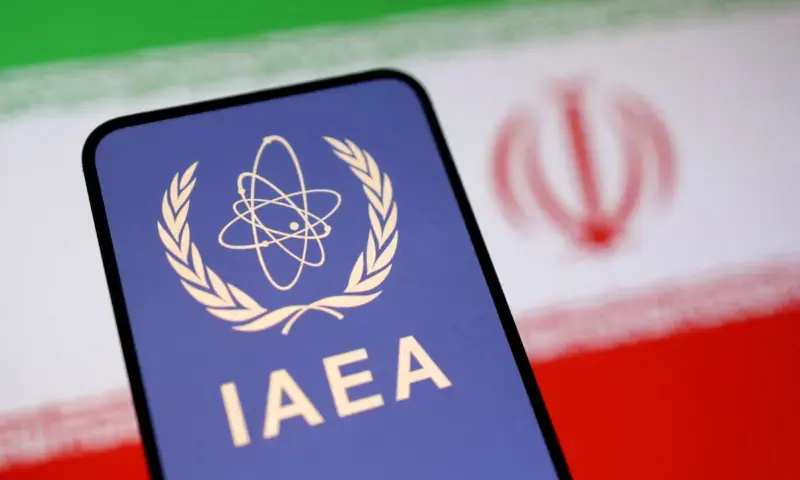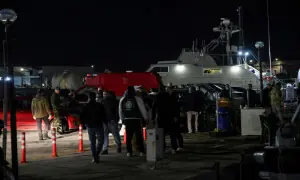Iran to suspend cooperation with IAEA, top security body says
Iran’s top security body has announced that the country’s cooperation with the United Nations nuclear watchdog would be “effectively” suspended following a UN Security Council vote not to maintain the lifting of international sanctions on Tehran.
The statement came from Iran’s Supreme National Security Council (SNSC), detailing the outcomes of a meeting chaired by President Masoud Pezeshkian, Xinhua reported.
During the meeting, the SNSC discussed what it called the “ill-considered” actions by France, Britain, and Germany – collectively known as the E3 – regarding Iran’s nuclear programme.
The council declared that Tehran’s cooperation with the International Atomic Energy Agency (IAEA) would be effectively suspended in response to the European countries’ actions, despite Iran’s ongoing cooperation with the agency and proposals to resolve the nuclear issue.
The SNSC tasked the Iranian Foreign Ministry with continuing consultations to safeguard national interests in line with the council’s decisions.
However, Iran has not specified when it will cease cooperation with the agency.
Iran’s state media reported that the meeting strongly condemned the actions of the UK, France, and Germany.
In a statement issued after the meeting, it was stated that if sanctions on Iran are reimposed, cooperation with the IAEA will be suspended.
On Friday, the UN Security Council failed to adopt a resolution that would extend sanctions relief for Iran under the 2015 nuclear deal, formally known as the Joint Comprehensive Plan of Action (JCPOA).
The resolution failed to receive the required nine votes. Russia, China, Pakistan, and Algeria voted in favour, while Guyana and South Korea abstained.
Nine members of the Council — the UK, France, Denmark, Slovenia, Sierra Leone, Panama, the US, Greece, and Somalia — voted against the resolution.
Last month, the E3 triggered the deal’s “snapback” mechanism, which allows UN sanctions to be reimposed within 30 days if Iran is judged in breach of the accord.
The sanctions are expected to take effect later this month.
Meanwhile, President Masoud Pezeshkian said that Iran would overcome any reimposition of sanctions through a so-called “snapback” process, after the UN Security Council voted not to permanently lift sanctions on Tehran.
“Through the ‘snapback’ they block the road, but it is the brains and the thoughts that open or build the road,” Pezeshkian said in remarks carried by state television.
“They cannot stop us. They can strike our Natanz or Fordow (nuclear installations attacked by the US and Israel in June), but they are unaware that it is humans who built and will rebuild Natanz,” Pezeshkian said.
“We will never surrender in the face of excessive demands because we have the power to change the situation,” Pezeshkian was quoted as saying by state media.
The “snapback” process would reimpose UN sanctions on Iran unless an agreement is reached on a delay between Tehran and key European powers within about a week.
Iran’s Supreme National Security Council separately warned on Saturday that the country’s cooperation with the International Atomic Energy Agency would “effectively be suspended” if the UN sanctions were reinstated.
Earlier this month, Iran and the UN nuclear watchdog said they had reached a deal on resuming inspections at sites including those bombed by the US and Israel but gave no specifics.
The snapback would reimpose an arms embargo, a ban on uranium enrichment and reprocessing, a ban on activities with ballistic missiles capable of delivering nuclear weapons, a global asset freeze and travel bans on Iranian individuals and entities.
For the latest news, follow us on Twitter @Aaj_Urdu. We are also on Facebook, Instagram and YouTube.


























Comments are closed on this story.